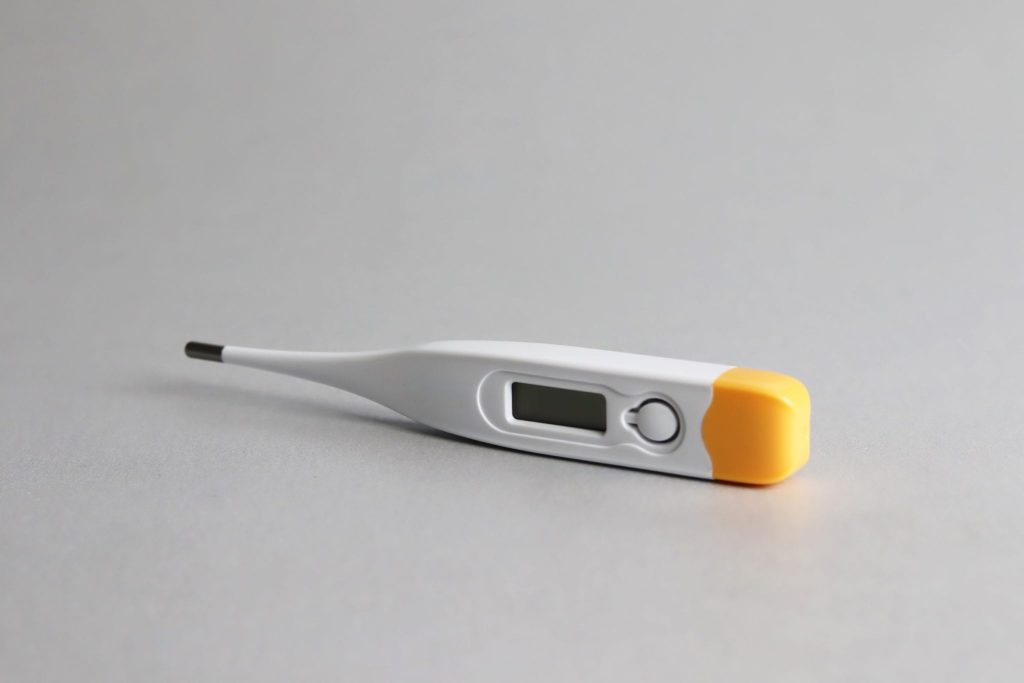It’s important to know what to expect after any surgery so you understand what’s normal and what’s cause for concern.
Here’s a list of 14 things you may experience after your own wisdom tooth surgery. If you have any questions about what symptoms you’re likely to experience, preparation for post-operative symptoms, or the symptoms you’re currently experiencing, please contact us.
Bleeding
Bleeding is exceedingly common after getting your wisdom teeth removed. However, it’s important that a blood clot forms soon so that the healing process can begin.
If the bleeding becomes excessive, cover the area with a cold, damp gauze pad and bite down to apply pressure. If the bleeding is still excessive after 30 minutes, moisten a tea bag with cold water and bite down for another half hour.
Bleeding can be minimized by sitting upright, avoiding exercise, and restricting movement near the extraction area. It’s normal for a small amount of bleeding to occur on and off over the few days following surgery, but you should try to diminish this as much as possible.

Swelling
Swelling near the mouth, cheeks, and eyes should be expected. It usually makes an appearance the day after surgery, peaking on the second or third day following the procedure.
You can reduce swelling by first utilizing ice. For the first 24 hours after you come home, apply ice to the areas of your face outside the surgery site. Apply it 20 minutes on and 10 minutes off using something like a soft cloth as a barrier. You should avoid putting the pack directly to your face as the cold temperature can damage your skin.
Approximately a day and a half after your surgery, you’ll want to switch to applying a warm, moist cloth to the swollen areas.
Pain
The pain will begin the same day as your procedure (as soon as the anesthetic begins to subside). The severity and how long it lasts will vary widely based on the individual. Take your pain medication exactly as it has been prescribed.
Sore Throat & Difficulty Swallowing
After some time at home, you may find yourself experiencing pain while swallowing in addition to a sore throat. This is common. What isn’t normal, however, is trouble breathing. Seek help if you’re experiencing this.
Stiff Jaw Or Difficulty Opening Your Jaw
A stiff jaw is a normal part of recovery from wisdom tooth surgery. This symptom will also cause difficulty when it comes to widely opening your mouth. Warm, moist heat can help relax your stiff muscles somewhat, but this symptom will subside on its own with time.
Discoloration
You may experience discoloration of your skin outside the extraction site. Don’t be alarmed if your skin turns a shade of yellow, green, blue, or black in this area between two and three days after surgery.

Fever
A slight fever the day following surgery is not necessarily cause for alarm, but please contact our office to let us know. It’s sometimes useful to take over-the-counter medication, but you should check with us before doing so.
Lightheadedness
Take care to move slowly the first few days after your procedure. You did, after all, just have surgery. As you are likely to be lying down a lot while recovering at first, you will want to be especially careful transitioning to a standing position. It’s easy to become lightheaded by moving too quickly.
You may also become more prone to lightheadedness due to medication or due to the fact that you’ll likely intake fewer calories than normal at the beginning of your recovery period.
Numbness
Temporary numbness of your lips, chin, or tongue isn’t necessarily a cause for concern. Just take care to not bite your lip or tongue if you can’t feel them!

Nausea
If you experience nausea or vomiting after the procedure, refrain from ingesting any medication, food, or fluids for at least an hour. After this time, sip on tea or a carbonated beverage such as ginger ale. Only after the nausea subsides should you take your prescribed medication.
Sutures
Sutures are often placed to help your extraction sites heal more quickly. The ones we use dissolve on their own. The rate at which they do so varies based on the person, but it can be anywhere from a few days to a little over a week. If they become dislodged before they can dissolve, don’t panic. Simply remove the suture from your mouth and discard it.
Dry lips
Many experience dry, cracked lips as a result of them being stretched out by a mouthful of gauze. Take care to protect them using lip moisturizer.
Dry Socket
Remember how we talked about the importance of blood clots in the healing process? A dry socket is what happens when a blood clot is dislodged or dissolves, exposing the bone and nerves underneath. If it happens, it usually occurs two to three days post-surgery. You’ll know you have one because you’ll experience severe pain near the surgical site that’s not resolved by your pain medication. The pain may radiate all the way up to your ear.
The good news is that only approximately 2-5% of individuals experience this phenomenon. The even better news is that it’s treatable. Contact us if this is something you’re experiencing.
Holes Where Your Teeth Used To Be
Eventually, you’ll notice an opening where each tooth was removed. Take proper care of this area and know that it will gradually fill with new tissue over the next month or two.

The healing process after wisdom tooth surgery looks different for everyone. While it’s unlikely that you’ll experience all these symptoms, you’ll probably experience many of them. Knowing what to expect before you go into it can help you prepare mentally.
If you have any questions about the symptoms you’re experiencing after your surgery, give us a call. It’s better to put your mind at ease than sit there worrying that something is wrong.
For more information about the wisdom tooth removal process, take a look at our blog.

